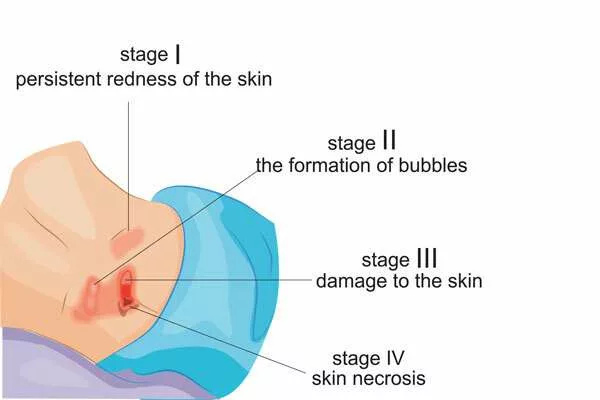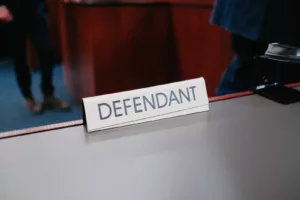The Causes of Bedsores
Bedsores, also known as pressure ulcers or decubitus ulcers, are painful and potentially life-threatening medical conditions commonly affecting elderly and disabled individuals. These sores result from prolonged pressure on the skin, typically in bony areas such as the hips, ankles, and heels. In nursing homes, bedsores are often a sign of neglect and inadequate care, with staff failing to reposition residents or provide proper medical attention.
This article will delve into the causes of bedsores, the importance of prevention, the legal implications of nursing home negligence, and how to seek justice for your loved one who has suffered from this preventable condition.
Bedsores develop when there is continuous pressure on specific areas of the skin for extended periods. This pressure restricts blood flow, depriving skin and underlying tissue of oxygen and nutrients, ultimately leading to tissue damage and the formation of open wounds. Several factors contribute to the development of bedsores, including:
1. Immobility: Individuals who cannot easily reposition themselves or require assistance are more susceptible to bedsores.
2. Poor nutrition and hydration: Malnourished individuals with inadequate fluid intake are likelier to develop bedsores, as their skin is more fragile and less damage-resistant.
3. Medical conditions: Individuals with diabetes, multiple sclerosis, or other conditions affecting blood circulation or skin integrity are at higher risk for bedsores.
4. Age: Older adults have thinner skin and a reduced ability to heal from injuries, making them more prone to bedsores.
Stages of a Bedsore
Bedsores develop in different stages, each showing how severe the sore has become.

Stage 1 Bedsores:
In the first stage, the skin may look red and feel warm to the touch. It might also be painful or itchy, but the skin is not broken.
Stage 2 Bedsores:
In the second stage, the skin breaks down, forming a shallow open wound, blister, or abrasion. This stage can be excruciating, and the sore needs proper care to avoid infection.
Stage 3 Bedsores:
In the third stage, the bedsore becomes deeper, reaching the layer of fat beneath the skin. The wound may look like a crater, and there is a higher risk of infection.
Stage 4 Bedsores:
The bedsore reaches even deeper in the fourth and most severe stage, affecting muscles, bones, and joints. At this stage, the sore can be extremely painful and cause severe complications, such as bone infections and damage to the surrounding tissue.
Catching and treating bedsores in their early stages is crucial to prevent them from becoming more severe and more challenging to heal.
Preventing Bedsores in Nursing Homes
Nursing homes are responsible for providing adequate care to their residents, including implementing measures to prevent bedsores. Preventative strategies include:
1. Regular repositioning: Caregivers should assist residents in changing positions every few hours to alleviate pressure on susceptible areas.
2. Pressure-relieving devices: Special mattresses, cushions, and padding can help redistribute pressure and reduce the risk of bedsores.
3. Proper nutrition and hydration: Ensuring residents receive well-balanced meals and sufficient fluids can promote skin health and reduce the risk of bedsores.
4. Skincare: Caregivers should keep residents’ skin clean and dry, as moisture can exacerbate the development of bedsores.
5. Regular assessments: Nursing home staff should routinely assess residents for signs of bedsores and take prompt action to address any issues.
Legal Implications of Nursing Home Negligence
When a nursing home fails to provide adequate care, and residents develop bedsores, the facility, and its staff may be held legally accountable for the consequences. Negligent nursing homes may face the following:
1. Personal injury or wrongful death lawsuits: Victims and their families can sue nursing homes for damages, including medical expenses, pain and suffering, and loss of companionship.
2. Regulatory penalties: Nursing homes that fail to meet state and federal standards of care can face fines, loss of funding, or even closure.
3. Criminal charges: In cases of severe neglect or abuse, nursing home staff may face criminal charges, including assault, battery, or manslaughter.
Seeking Justice for Victims of Nursing Home Negligence
If your loved one has developed bedsores while in a nursing home, it’s essential to take action to protect their rights and hold the negligent facility accountable. Here are some steps you can take:
1. Document the bedsores: Take photographs of the affected areas and record the sores’ progression.
2. Request medical records: Obtain copies of your loved one’s medical records, including any documentation related to the treatment of their bedsores and overall care.
3. Speak with other residents and their families: Reach out to them to see if they have experienced similar issues, as this may indicate a pattern of neglect at the facility.
4. Consult a bedsore lawyer: Seek legal advice from an experienced attorney who can help you understand your rights and guide you through filing a lawsuit against the nursing home.
5. Report the nursing home: Notify state and federal regulatory agencies of the neglect so they can investigate the facility and take appropriate action.
6. Gather evidence of past negligence: Research the nursing home’s history for any previous citations, warnings, reprimands, or violations that may support your claim.
7. Advocate for improved care: Work with other families and advocacy groups to push for better care and stricter regulations to prevent future bedsores and other forms of neglect in nursing homes.
By taking these steps, you can help ensure justice for your loved one and work towards preventing future incidents of nursing home negligence.
Bedsores are a serious and preventable medical issue that affects many nursing home residents. They often show neglect and inadequate care, with staff failing to provide proper medical attention and preventative measures.
It is crucial for families to be vigilant in monitoring their loved one’s care in nursing homes and to take action if they suspect neglect. By seeking legal advice and advocating for better care and stricter regulations, we can work together to improve the quality of life for elderly and disabled residents in nursing homes and protect them from the devastating consequences of bedsores and other forms of neglect.








